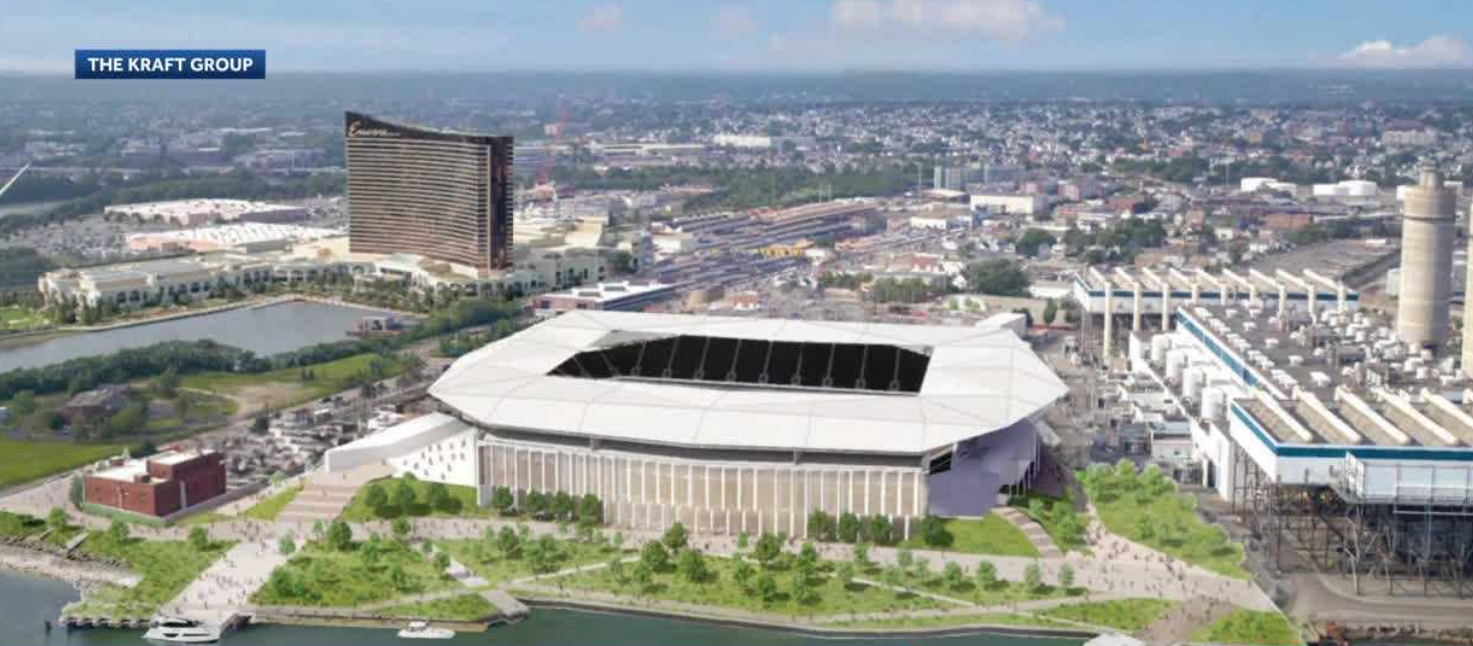
Gov. Healey’s $4B Economic Bill Paves the Way for Revolution’s New Stadium and Ticket Resale Reform
In a significant move for Massachusetts’ economic development, Governor Maura Healey has signed a $4 billion economic development bill that includes a variety of provisions aimed at bolstering key industries, including life sciences, artificial intelligence, and climate tech. However, one of the most noteworthy aspects of this new law is the inclusion of measures supporting the construction of a new soccer stadium for the New England Revolution in Everett. This step is a major leap forward for the local sports scene, as the Revolution have long shared Gillette Stadium with the New England Patriots in Foxborough.
The new stadium, which will be built on a previously industrial site along the Mystic River, will provide the Revolution with a dedicated venue designed specifically for soccer. This is expected to enhance the fan experience by offering a more intimate and soccer-focused environment. The facility will seat between 22,000 and 24,000 spectators, significantly less than the 65,000-capacity Gillette Stadium, but the Kraft Group, which owns both the Revolution and Patriots, is banking on the smaller size to create a more passionate and engaged fan base.
Also Read:- U.S. Rockets Target Russian Arsenal as Ukraine Escalates Counteroffensive
- Weather Causes Delays in School and Service Center Openings Across the Region
This shift towards a soccer-specific stadium comes after a season where the Revolution set a franchise attendance record, averaging over 29,000 fans per game. Despite their on-field struggles, this fan engagement has shown promise, and the team is optimistic that a more localized venue will boost their relevance in the Greater Boston area. The goal is not just to increase ticket sales but to drive broader revenue through merchandise sales, in-game concessions, and potentially lucrative naming rights and sponsorship deals.
However, the path to building this stadium is not without hurdles. The site where the new stadium will rise is a former power plant, currently designated as a port area. The legislation signed by Healey removes this designation, clearing the way for redevelopment. The site will need significant environmental cleanup before construction can begin, and with a proposed timeline of having the stadium ready by 2027, there are still plenty of regulatory and engineering challenges ahead.
Additionally, the bill includes measures that will impact the way tickets are sold and resold in Massachusetts. One of the provisions, which has sparked controversy among consumer advocacy groups, allows ticket sellers to restrict the transferability of tickets as long as the restrictions are clearly disclosed to consumers. While this provision aims to address the growing concerns about automated ticket purchasing and unfair resale practices, critics argue that it could further entrench the dominance of companies like Ticketmaster and Live Nation in the live event industry.
Despite these challenges, the broader aim of the bill is to foster growth in emerging industries, creating thousands of jobs and reinforcing Massachusetts' position as a hub for innovation. Healey's commitment to expanding the state's tax incentives for life sciences, climatetech, and artificial intelligence companies underscores her vision for the future of Massachusetts as a leader in cutting-edge sectors.
By supporting projects like the Revolution's new stadium and investing in high-growth industries, Governor Healey is positioning Massachusetts for long-term economic success. While the legislation may have its critics, particularly with regard to ticket resale rules, the new law promises to create a lasting impact on both the state’s economy and its sports culture.
Read More:

0 Comments